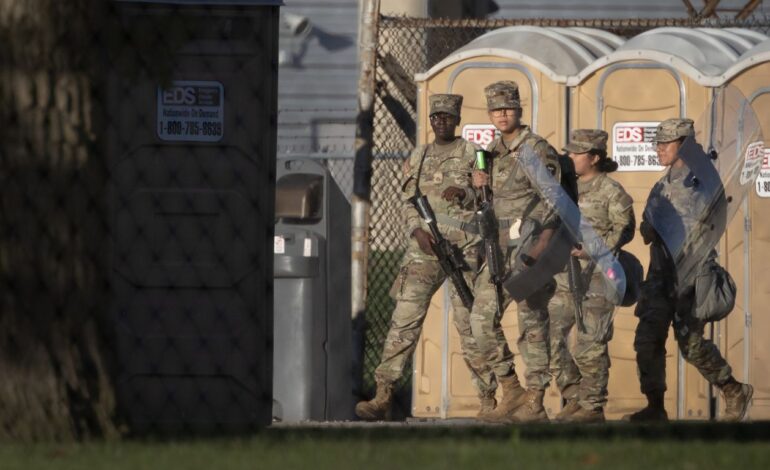Judge Blocks Trump’s National Guard Deployment in Chicago

A federal judge has temporarily prohibited President Donald Trump from deploying the National Guard to Illinois as part of his immigration enforcement strategy. This decision follows a ruling by Judge April Perry, who granted a temporary restraining order to the state of Illinois, effectively halting any immediate plans for troop deployment.
The ruling, delivered on October 5, 2023, suggests that the state, along with its co-plaintiffs, presented a compelling case against the deployment, which they argued was “unlawful and dangerous.” A detailed written ruling is expected to be released soon.
The context of this legal action lies in Trump’s recent announcement to send troops to Chicago and surrounding areas to support federal law enforcement operations. As of earlier this week, approximately 500 National Guard soldiers from both Illinois and Texas had already been stationed in the Chicago region. These troops were initially deployed for a period of 60 days to assist the U.S. Immigration and Customs Enforcement (ICE) and other federal personnel in enforcing immigration laws and protecting government property.
The White House now faces the possibility of appealing the judge’s ruling. Alternatively, Trump could explore other avenues of executive authority, such as invoking the Insurrection Act, to mobilize additional troops across American cities.
In response to the judge’s ruling, officials from the Trump administration, including Homeland Security Secretary Kristi Noem, have argued that the National Guard is essential to safeguard federal law enforcement, particularly following confrontations with protesters near ICE facilities in the Chicago area. “If J.B. Pritzker actually walked the streets of his own city, he would see domestic terrorists and violent rioters attacking police officers,” stated Tricia McLaughlin, Assistant Secretary of Homeland Security.
This ongoing legal battle underscores the contentious relationship between state and federal authorities regarding immigration enforcement. The Illinois administration has positioned itself against what it views as excessive federal intervention in local governance.
The situation remains fluid, with significant implications for the deployment of troops and the broader conversation about immigration policy in the United States. As developments unfold, observers are keenly watching how the federal government will respond to the ruling and what steps may be taken next.
This story is still developing, and updates will be provided as new information becomes available.






